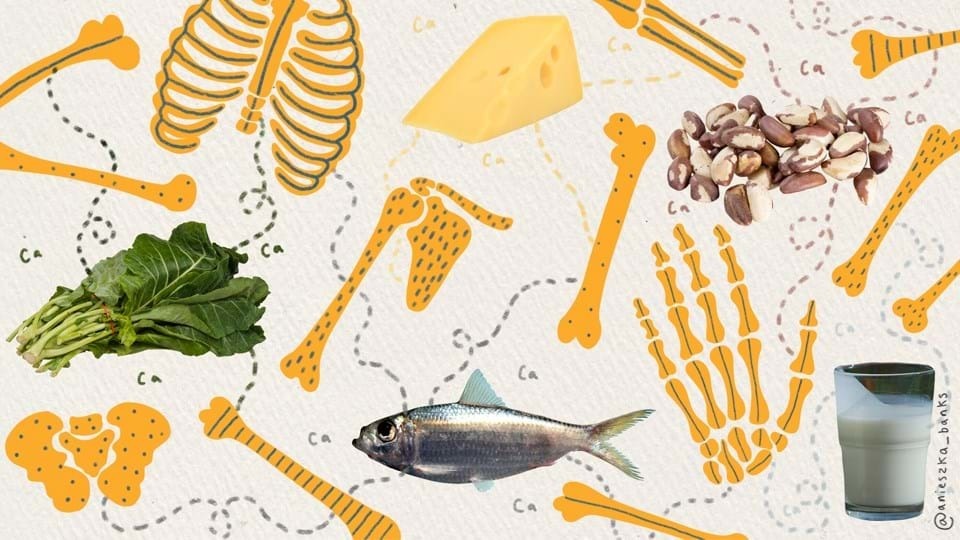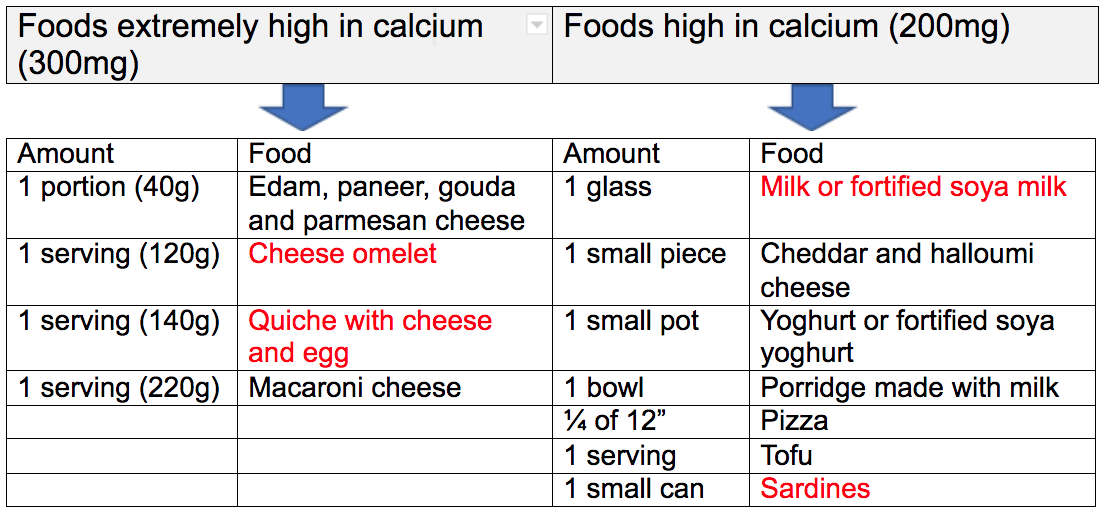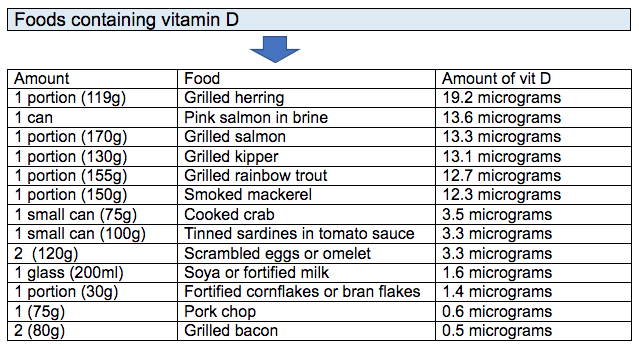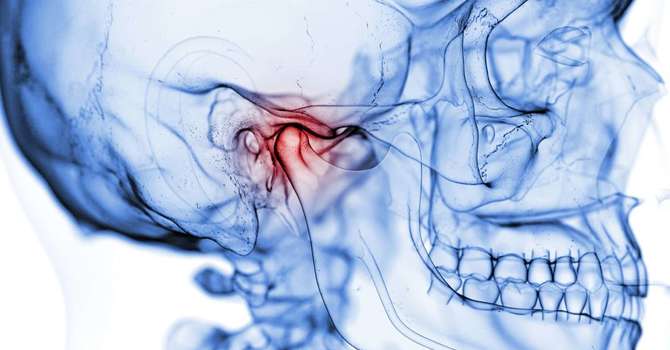
Bone tissue is alive and is constantly changing throughout our life. Old bone tissue is regularly removed, and new bone tissue is laid down in its place – a process known as bone remodelling. Osteoporosis occurs when this process stops working so well. Up to the age of around 35 years old our bone strength is increasing. This is when we reach our peak bone mass. After this our bone strength starts to decline. The greater our peak bone mass the less chance of developing osteoporosis later on in life. We can develop a greater peak bone mass, maintain our bone strength and help prevent the development of osteoporosis by addressing the following:
- eating the right foods
- leading a healthy lifestyle
- being active
Eating the Right Foods
Eating the right foods throughout our life can help support our bone health and the 2 key nutrients that are important are calcium and vitamin D. Adults need around 700mg of calcium a day and teenagers need around 800mg a day.
(Foods highlighted in red are also high in vitamin D.)


Don't worry if you don't get enough calcium everyday. As long as you generally reach the recommended amount, not getting enough on the odd day shouldn't impact your overall bone health.
Too much calcium may increase your risk of other health problems.

It is difficult to get enough vitamin D from food so there are other things that can be done to obtain vitamin D including taking supplements. There is no risk from taking too much vitamin D but do not deliberately take too much.
Leading a Healthy Lifestyle
Apart from eating certain foods to improve your levels of calcium and vitamin D there are also some other things that you need to take into consideration:
Exposure to sunlight:
It is recommended you expose your skin to direct sunlight for around 10 minutes once or twice per day (no sunscreen) to help boost levels of vitamin D.
Avoid too much caffeine:
A high-caffeine diet increases the amount of calcium lost in urine. In theory, this could lead to your bones losing strength if you don’t consume enough calcium to replace it.
If you drink coffee:
- aim to have no more than four cups of coffee a day.
- strong, ground coffee contains more caffeine than instant coffee.
- if you’re concerned, balance out the loss of calcium by drinking your coffee milky.
Remember that some soft drinks, such as cola, contain caffeine too.
If you drink tea:
While tea does contain caffeine, it isn't found to have the same effect on bones. This could be because it contains other substances, such as flavonoids, that may offer a slight benefit to your bones and counteract the effects of caffeine.
Avoid too much saturated fat and salt:
Too much saturated fat can cause bones to lose strength as may excess salt. Limit the amount of liver and liver products such as pate and fish oils: A high intake of a certain form of vitamin A found in these products can cause bones to lose strength.
Being Active
Weight bearing activity and muscle strengthening exercises help increase bone density as it stimulates the bone to strengthen.
Weight bearing activity is any activity that is performed on your feet with some kind of jolt through the body such as walking, jogging or some kind of jumping activity.
Muscle strengthening activity includes any activity that requires your muscles to move against some kind of resistance. This resistance can be applied by using weights, a resistance band or by using body weight such as when you are squatting or doing a press up.



